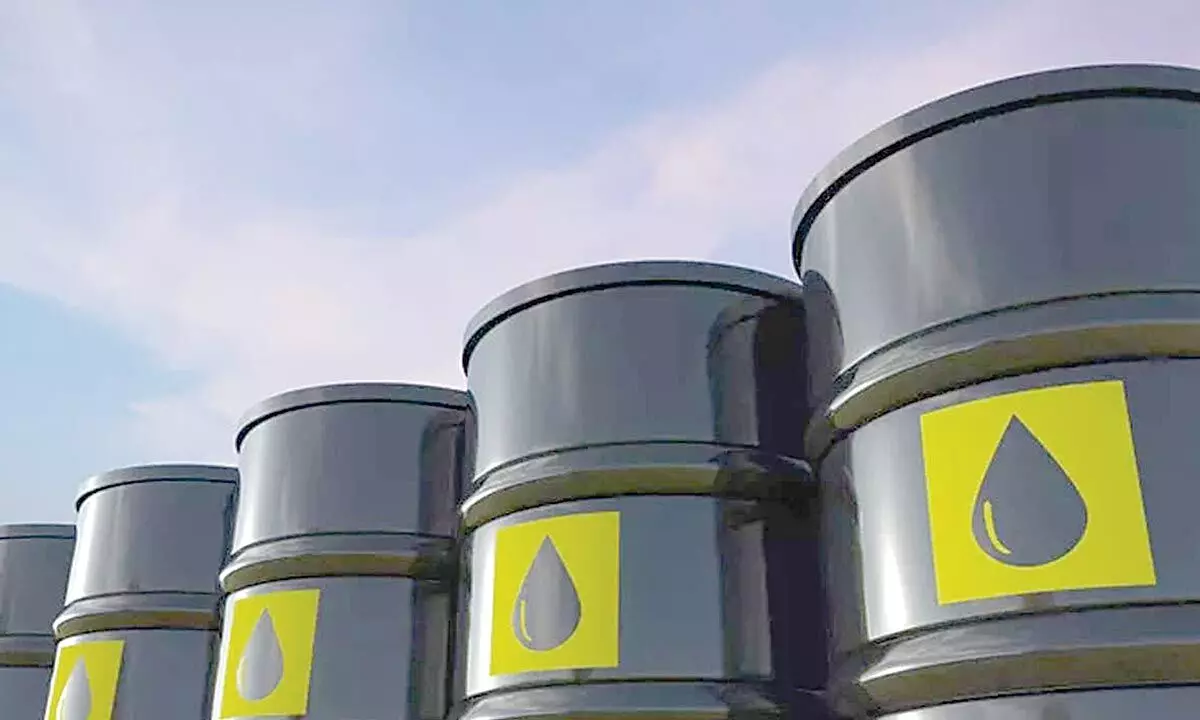EU ban on Russian refinery products will benefit India
India, already a net exporter of refined petroleum products, has increasingly been selling them to western countries
image for illustrative purpose

It cannot be said with certainty that the sanctions on Russian crude oil have had a big impact on that country. This is especially since Russia has been able to find new buyers for its oil, notably India and China. In fact, India is now importing as much as 28 per cent of its monthly requirements from Russia
India is set to benefit from the European Union's ban on purchase of refined oil products like diesel, kerosene and petrol from Russia. The ban along with a price cap has been imposed since February 5 as a follow up to an earlier price cap imposed on sales of crude oil by that country. This forms part of the effort to impose more crippling sanctions on Russia and prevent it from garnering normal revenues from sales of crude oil and products.
The EU has already cut back on purchases of crude oil while supplies of natural gas through the Nordstream pipeline have been curtailed by Russia. It is therefore looking to meet its energy needs now from the US, West Asia and India. The price cap on crude oil was fixed at 60 dollars per barrel last December and is being enforced by barring insurance and shipping services from handling oil sold over this ceiling. The same method is proposed to be used for oil products.
In the case of products, India can now step in as a supplier from its several large refinery complexes. It is already a net exporter of refined products and has increasingly been selling to western countries which are now prepared to pay higher prices especially for diesel. In this context, oil experts say that diesel is key for the European economy as it is used to power cars, trucks, farm equipment and factory machinery. Prices have also been ruling at fairly high levels owing to the demand surge after the pandemic and insufficient global refinery capacity.
In fact, the price cap of 100 dollars per barrel fixed for diesel, jet fuel and petrol from Russia is considered as being at about the current market levels and hence not really effective as a ceiling price. The problem for Russia is thus to find new buyers rather than evading the price ceiling. The aim of the EU is apparently to ensure that the country does not benefit from any future price spikes as the oil markets have been quite volatile over the past year.
As for the benefit to India, it has now become one of the leading global suppliers of refined oil products. Annual exports are roughly estimated at about 25 billion dollars though this is likely to rise over the next year owing to growing demand. Currently, the biggest customer for this country's refinery products is the US. though this may change now with the Europe seeking to buy more from here.
The chief of the International Energy Agency Faith Birol has commented in a recent interview that Europe must find a new source of import for refined oil products. He felt India appeared to be a favourable candidate. He also clarified that the main objectives of putting a price cap on Russian crude were to reduce the country's oil revenue while avoiding trade distortions. These aims, he argued, seem to have been met. Russia's oil and gas revenues are reported to have dropped by about 30 per cent due to these measures.
On the other hand, it cannot be said with certainty that the sanctions on Russian crude oil have had a big impact on that country. This is especially since Russia has been able to find new buyers for its oil, notably India and China. India, in fact, is now importing as much as 28 per cent of its monthly requirements from Russia. In addition, there are reports that oil loadings from that country's Baltic ports are slated to rise by about 50 per cent in January compared to the previous month.
In the case of the latest ban on buying refined oil products, the stoppage of supplies to European consumers will not create any difficulties immediately as importers are reported to have stocked up in advance over the past few months. It was known that the ban was in the offing so inventories were topped up. Russia is believed to have earned over two billion dollars from diesel sales to European countries in December alone owing to these sales.
The outlook for Indian exports of diesel and other refinery products has thus brightened considerably. It will also give a boost to merchandise exports which had begun to plateau over the past few months. Given global recessionary trends, it was expected that exports may not cross last year's record level of 420 billion dollars in 2022-23. And the prospects for the next fiscal have been dependent on demand reviving in major western markets. A rise in refinery products would thus be coming at the right time.
The additional sanctions on Russia have made the oil scenario more complex and it is difficult to predict the trend of prices in the coming year. Currently the benchmark Brent crude has inched up to about 84 dollars per barrel. There are varying forecasts for 2023 but much will depend on geopolitical developments. The revival of the Chinese economy could bring about a surge in demand but this may be counter-balanced by the recessionary trends being witnessed in western countries. A resolution to the Ukraine conflict could also alter the situation significantly. In this complex backdrop, India should be able to face any volatility in the future as it now has the advantage of becoming a major oil products exporter as well.

